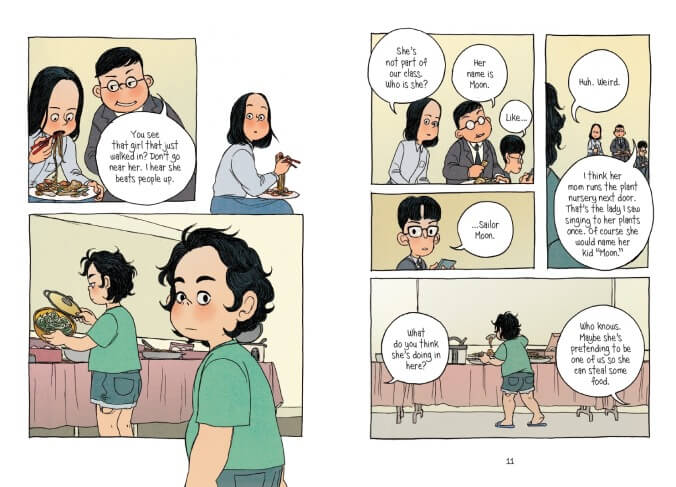Stargazing has just as much heart as Jen Wang’s 2018 hit, The Prince And The Dressmaker

Jen Wang’s The Prince And the Dressmaker was unquestionably one of the big hits of 2018, beloved by fans and celebrated by critics. A story of identity and love, the book resonated with a lot of readers and made a showing in a slew of best-of lists at the end of the year. That kind of success can put undue pressure on a follow-up, but Stargazing and Wang both rise to meet the challenge and exceed all expectations with a book that is full of sweetness and seriousness in turns, and offers a lot of kindness to characters and readers both.
On its face, Stargazing is a departure from The Prince And The Dressmaker. While they’re both aimed at younger readers, the former is middle grade while the latter is young adult. This can feel like a small distinction to adult readers, but tropes and topics don’t always translate from one group to the next, as the needs of each demographic are different. Stargazing centers on a young Chinese girl, focused on school, violin, and the community her parents have supplied her with. Christine is the sort of protagonist that a lot of readers, especially female readers of a certain age, will find familiar: She falls right in line with American Girl and Baby-Sitters Club books, stories that focus on female friendship. Christine’s friend group is largely made up of other Chinese-American kids who attend the same church and study Chinese with her and her mom. Her world is far from isolated, but it is homogenous in some ways. She knows what is expected of her, partly because it is expected of most of the people around her.
What follows is a story with a lot of heart, a character-driven journey that does justice to Christine and the new friend that threatens to upend her comfortable life. Christine is settled and confident with the way her life is, but when her parents invite a new family to move into the extra apartment on their property, things start to change. Moon is the same age as Christine, new to town along with her single mom, and different in almost every way Christine can conceive of. At one point, while assessing her new friend, she remarks that Moon must not be Asian, because she falls so far outside of what Christine understands to be Asian identity. Their friendship is tested, not just by standard kid drama but by more serious and scary things, the sorts of things that would shake up even adult relationships. With body language and facial expressions, Wang does an excellent job of conveying the highs and lows of childhood on the cusp of being a teen, and her great work is elevated even further by soft and careful coloring from Lark Pien.
Stargazing belongs to a long tradition of stories like this one, about how differences make people strong instead of weak, and how acceptance and inclusion are important. But what sets this book apart, like The Prince And The Dressmaker before it, is the skill with which Wang balances the needs of each character. Christine is not a villain for being frustrated and frightened of Moon’s unfamiliar behavior, no more than Moon is for being different. They are both equally good and bad, equally worthy of love, and importantly they are both equally Asian. Every character in Stargazing is approached kindly, with an understanding of how complex people are and the sheer variety they offer. Christine’s father and Madison, a white classmate of Moon and Christine’s, could have easily been reduced to stereotypes, passive obstacles, or even active difficulties for Christine and Moon to overcome. But Wang gives every character the benefit of the doubt, and finds space for love and caring in each of them. It’s an ideal approach to a middle-grade book, and a near-perfect read.
